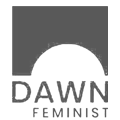By Rasha Fattouh, Arab NGO Network for Development (ANND)
The spread of the coronavirus in Lebanon came in the wake of a threatening political and economic crisis that hit the country in mid-2019. Prior to the pandemic, Lebanon has been suffering from an economic recession that exploded in August 2019. The Lebanese economy was showing signs of the crisis starting from 2016 when the debt service level was increasing (35% of the budget) along with the negative balance of payments and the deficit exceeding 11 percent. This was accompanied by the destabilization of the exchange rate. Poverty and unemployment rates were rapidly increasing due to massive business closures. In addition, the country faced the collapse of the banking sector, making it difficult for individuals and households to access their bank accounts.
In the face of this economic turmoil, the Lebanese population took to the streets on 17 October 2019 calling for political and systemic changes and for economic reforms. The mass protests forced the resignation of the government, a new government was appointed in January 2020; The COVID-19 pandemic exacerbated the economic crisis but turned the tables in favour of the traditional political elites. With lockdown and containment measures being imposed, and the number of cases increasing, the protests were demobilized, and they could not continue with curfews and restrictions on movement.
The newly appointed government's lack of a proper response has left most of the families starving, helpless and incapable of affording basic necessities. Containment measures have only shed light on existing gaps in Lebanon’s social protection system. There are little or even no formal programmes to support poor households. Even the government’s decision to distribute 400,000 Lebanese pounds (approximately US$ 265) to the poorest families--which was taken back on 1 April 2020--implemented by the Lebanese Army in coordination with the local authorities, was very vague and poorly organized. Most of the beneficiaries were not among the families in need but selection took into consideration their political and sectarian affiliations.
On top of that was the enormous explosion of 4 August 2020 that shook the entire country, resulting in 206 deaths, more than 6,000 injuries, US$ 10-15 billion worth of property damage and the displacement of 300,000 people from their homes. It is also worth adding that the blast destroyed nearby hospitals and several overly crowded healthcare facilities all during the pandemic and resulting healthcare crisis, when medical resources and supplies were already limited, and the healthcare situation had never been worse.
After the blast, the government resigned, leading to a political crisis on 6 August 2020 despite the most existential and complicated crisis in the modern history of the nation. Poverty and unemployment rates are dramatically rising, soaring inflation rates are coupled with food and medicine shortages, thus creating an escalating increase in prices. Concerns about increases in malnutrition have taken the spotlight too as a result of reduced access to food and insufficient dietary intake for many of the most vulnerable. The medical sector has been exhausted, with hospitals and pharmacies unable to provide basic needs and medicines. The public health sector faced the first shock while the private health sector was facing financial shortfalls that decreased its ability to respond to the mounting needs. Adding to the nightmare were 22 hours-per-day electricity blackouts, and shortages of fuel, which also led to an education catastrophe. With no electricity, and no internet connection, a lot of children were not able to continue their education and ended up dropping out. And, with 55 percent of the Lebanese population living in poverty, not every household could afford an electronic device for their children to attend their classes. All of these immense socio-economic consequences of the pandemic are most likely to worsen and become more long-lasting than the pandemic itself. The weakened State and its inability to confront corporate monopolies, especially in the energy sector, medicines and food, exacerbated the crisis and caused shortages in basic commodities.
In general, the Lebanese government has neither initiated nor implemented any crucial reforms in support of an economic rescue plan. Consequently, the donor community abstained from supporting Lebanon, limiting their interventions to the immediate humanitarian response through civil society and non-state actors. Civil society organizations have stepped up to compensate for the government’s shortcomings. They served as first responders to the crisis despite the fact that the pandemic suspended their most basic activities. With limited funding opportunities, lacking the capability to accommodate fundraising events, and with the continuous drop in governmental support, several CSOs are at risk of not being able to operate further. Even the financial rescue plan that was developed, was never approved but restricted due to political deadlock. Thus, several CSOs and volunteers took their own initiatives, and decided to act swiftly despite lack of resources and limited capabilities. Most of the activities are funded by solidarity campaigns from the Lebanese people, both in Lebanon and in the diaspora. Again, with the absence of an adequate and inclusive plan to deal with the socio-economic repercussions of the pandemic, Lebanese civil society has a significant role to play in protecting the most vulnerable. The challenge remains in being able to survive, and able to supply adequate resources.
The World Bank suggested two rescue plans: one was an immediate loan to provide humanitarian support to the poorest families, but the Ministry of Social Affairs failed to provide the relevant data and the programme is still not implemented. The second is a loan to target 70 percent of families with food vouchers on the condition that the government lift subsidies, basically food, medicines and oil; these austerity measures will create an increase in poverty to more than 65-70 percent. Not surprisingly, civil society is highly critical and calls for the implementation of a comprehensive social protection plan covering health, education and food support.
Most recently, the IMF decided to provide Lebanon with US$ 860 million in the form of Special Drawing Rights (SDRs). The Lebanese authorities don’t have a vision in terms of how to set priorities; some are suggesting using the SDRs to provide humanitarian and food support, others to invest in infrastructure. Civil society suggests a third option is to invest in productive sectors, mainly food processing and the pharmaceutical industry. However, whatever the objectives are, there is no trust in the current highly corrupt ruling politicians where the risk to waste resources is very high.
The multiple crises have increased social volatility and insecurity as pressure rises to provide basic necessities among extremely scarce resources. The Lebanese population is now struggling for survival, and the government has failed to carry out any reforms that could have boosted the economy or at least have unleashed international aid. It has historically depended on huge amounts of debt to pay its bills, making it the third most indebted country in the world, and prevalent corruption has also drained governmental funds. For any hope of recovery, it is crucial to introduce core systemic reforms, securing the efficiency of the political institutions and judiciary as well as the public administration. It is imperative to establish oversight and accountability mechanisms to monitor public spending and adopt structural changes, such as a new economic reform plan that draws a roadmap for more progressive and effective taxation and strives to build back the trust that has been completely abolished.








